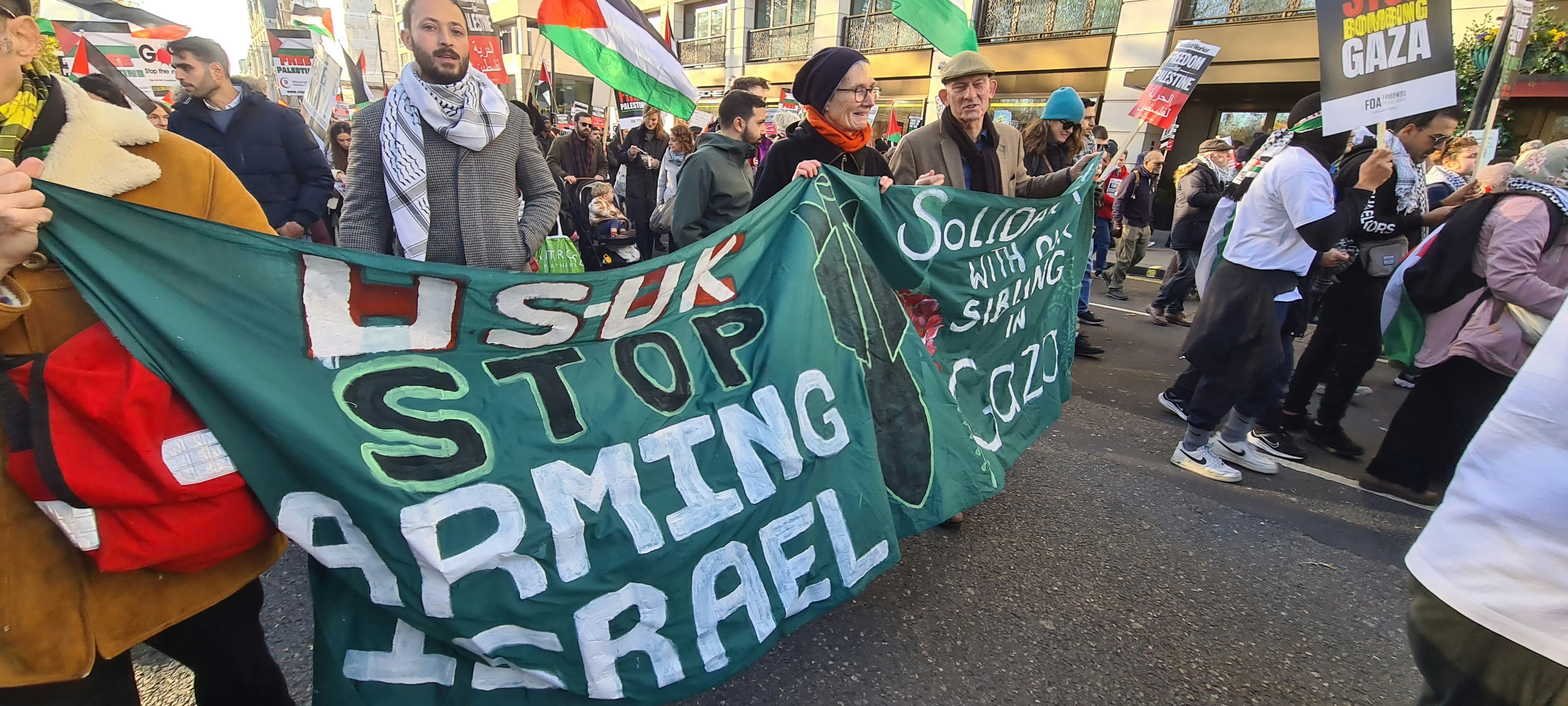
Introduction to the EU’s Proposal
The European Union has recently put forth a proposal aimed at imposing trade restrictions on Israel, a measure that arises from the ongoing conflict in Gaza. This move reflects the EU’s growing concern over the humanitarian situation in the region, which has escalated significantly in recent months. The EU’s proposal can be seen as a response to the increasing civilian casualties and the deteriorating living conditions faced by the Palestinian population in Gaza.
The context surrounding this proposal is vital for understanding the EU’s actions. Over the past few months, tensions have heightened due to various incidents of violence, military actions, and retaliatory measures from both sides. Specifically, a series of violent exchanges between Israeli forces and armed groups in Gaza has resulted in substantial destruction and loss of life, prompting international scrutiny and calls for action. In light of this, the EU has consistently articulated its commitment to a peaceful resolution of the conflict, emphasizing its role as a mediator in the region.
This proposal is part of a broader initiative by the EU to re-evaluate its policies concerning Israel, particularly in the context of the conflict’s impact on human rights. The trade curbs are intended not only as a punitive measure but also as a means to pressure the Israeli government into reconsidering its military strategies and approaches to Gaza. Furthermore, the EU underscores the necessity for immediate humanitarian aid and support for those affected by the conflict, illustrating its alignment with principles of international humanitarian law. As the situation evolves, the EU’s position may continue to adapt to the ongoing developments, balancing its political, economic, and humanitarian aspirations.
Background of the Gaza Conflict
The Gaza conflict, steeped in a complex historical backdrop, has evolved through a series of key events that significantly impacted the region’s dynamics. This longstanding struggle traces its roots back to the early 20th century, with the rise of nationalist movements among both Palestinians and Jews. The formation of the State of Israel in 1948 marked a pivotal point, as it led to the displacement of numerous Palestinian families, an event that remains a source of deep-seated grievances.
In the ensuing decades, multiple conflicts, including the 1967 Six-Day War, further altered the landscape, resulting in Israel’s occupation of the Gaza Strip and West Bank. The establishment of the Palestinian Liberation Organization (PLO) during this period encapsulated the Palestinians’ aspiration for self-determination. However, the subsequent rise of Hamas in the late 1980s introduced a more militant approach to the Palestinian struggle, complicating peace efforts and contributing to the fragmentation of Palestinian political authority.
The Oslo Accords in the 1990s provided a glimmer of hope for peace, offering a framework for potential coexistence. However, persistent violence, including frequent escalations and military operations, eroded public trust on both sides. The blockade imposed by Israel since 2007, following Hamas’s takeover of Gaza, has exacerbated the humanitarian crisis within the territory, leading to high levels of poverty and restricted access to essential services.
International involvement has also played a crucial role in shaping the conflict, with various countries and organizations attempting to mediate and propose resolutions. Nevertheless, competing narratives between Palestinian and Israeli authorities have led to a cycle of violence and retaliation, leaving the prospects for a peaceful resolution increasingly bleak. Understanding the historical context of the Gaza conflict is essential to recognizing its multifaceted nature and the urgent need for a comprehensive approach to address the ongoing humanitarian issues affecting civilians in the region.
Details of the Proposed Trade Curbs
The European Union (EU) has formally proposed a series of trade curbs aimed at addressing the ongoing humanitarian crisis in Gaza, resulting from recent escalations in the conflict. These measures are designed to impact specific goods and services crucial to Israel’s economy, with an emphasis on arms, military-related products, and certain categories of dual-use items, which may have both civilian and military applications. The proposed restrictions are part of a broader strategy to hold Israel accountable for its military actions while simultaneously aiming to alleviate the dire humanitarian conditions faced by the Gazan population.
Among the targeted goods are not only weapons and ammunition but also technology that can be utilized in surveillance and military operations. The EU’s rationale for these trade curbs is anchored in adhering to international law and promoting compliance with human rights standards. By restricting trade in these sensitive areas, the EU aims to exert pressure on Israel to reconsider its military strategies and prioritize humanitarian considerations in the ongoing conflict.
Additionally, the curbs may extend to services provided to the Israeli military, particularly those related to logistics and support systems that facilitate military operations. This approach reflects a commitment from the EU to address not only the immediate humanitarian implications of the conflict but also to set precedents for international accountability. The implementation of these trade restrictions is proposed as both a response to the current crisis and a commitment to ensuring future compliance with international norms regarding armed conflicts and civilian protections.
This initiative marks a significant shift in the EU’s trade policy regarding Israel, reflecting mounting pressure from member states concerned about the humanitarian implications of the conflict. It is anticipated that these restrictions will catalyze broader discussions regarding the EU’s role in the geopolitics of the region, particularly in balancing humanitarian obligations with political considerations.
Reactions from Israel and the EU Member States
The recent proposal by the European Union (EU) to implement trade curbs on Israel in response to the ongoing Gaza conflict has elicited a wide array of reactions from various stakeholders. Israeli officials have voiced strong opposition to the potential sanctions, arguing that such measures undermine diplomatic efforts and exacerbate economic tensions in the region. They maintain that the curbs could adversely affect ordinary citizens and hinder cooperation between Israel and its European partners. Statements from the Israeli government emphasize that trade relations with the EU have historically been beneficial for both sides, underscoring the importance of dialogue over punitive actions.
On the other hand, several EU member states have expressed support for the proposed sanctions, citing humanitarian concerns resulting from the conflict. Advocates for the trade curbs argue that these measures are necessary to hold Israel accountable for actions deemed disproportionate and harmful to civilians. Countries such as Ireland and Sweden have been particularly vocal, reinforcing the notion that economic instruments should be used to promote adherence to international law. This divide among EU states highlights differing national priorities, where issues of human rights and security attract varied degrees of urgency.
Meanwhile, other international voices, including NGOs and human rights organizations, have welcomed the EU’s move as a step toward justice and accountability. They assert that the curbs could leverage pressure on Israel to alter its military tactics and engage more constructively in peace negotiations. However, critics of the proposal, including some political analysts, argue that such actions may ultimately exacerbate the situation, alienating key partners and stifling dialogue. The political implications of the EU’s stance underscore the ongoing complexities within international relations, particularly concerning Middle Eastern affairs. As discussions progress, the reactions from both Israel and EU member states will play a pivotal role in shaping the future of trade relations and broader diplomatic engagement in the region.
Impact on EU-Israel Relations
The proposed trade curbs by the European Union in response to the ongoing Gaza conflict signify a pivotal moment in EU-Israel relations. These measures are primarily aimed at addressing humanitarian concerns, reflecting the EU’s stance on Israel’s military operations in Gaza. As a result, the implications for diplomatic relations between the two entities could be profound. Historically, the EU has played a mediated role in the Israeli-Palestinian conflict, promoting dialogue and negotiations. However, the introduction of trade restrictions could strain these diplomatic efforts, potentially leading to a cooling of bilateral relations.
From an economic standpoint, trade curbs can significantly affect Israel’s export economy, particularly in sectors heavily reliant on European markets. The EU is one of Israel’s largest trading partners, underpinning a substantial percentage of its gross domestic product. If the curbs are implemented, Israel might experience a range of economic repercussions, including reduced market access and diminished investments from EU countries. In response, Israel may seek to diversify its trade partners, potentially shifting focus towards markets in Asia or the Americas. This strategic pivot could reshape the existing economic landscape, altering longstanding trade dynamics.
On the diplomatic front, both Israel and the EU may face challenges in future negotiations, particularly regarding peace processes and collaborative initiatives. The EU’s commitment to promoting human rights and humanitarian law may put further pressure on Israel to alter its policies in the region. Conversely, Israel’s leadership may view the proposed trade curbs as an infringement on its sovereign rights, which could foster resentment and lead to a hardened stance in negotiations. As both parties navigate these complexities, the future of their relationship hinges on finding a balance between addressing humanitarian concerns and upholding economic and diplomatic dialogue.
Humanitarian Considerations in the Decision-Making Process
The humanitarian crisis in Gaza has significantly influenced the European Union’s proposal to impose trade curbs on Israel. Reports from various humanitarian organizations have documented alarming statistics, illustrating the dire conditions faced by the civilian population in the territory. According to recent data, the situation has escalated to a level where access to essential services such as water, electricity, and medical care has become severely restricted. These factors have prompted the EU to take a proactive stance in re-evaluating its trade relations with Israel, leveraging economic measures as tools to advocate for humanitarian considerations.
The moral obligations of the international community are critically shaped by the humanitarian metrics emerging from the Gaza Strip. The United Nations has reported that thousands of civilians have been displaced due to ongoing conflicts, further exacerbating the existing crisis. This dislocation not only affects immediate safety but also has long-term implications for health and social stability. As part of the EU’s commitment to a rules-based international order, such humanitarian issues cannot be overlooked when formulating trade policies. The integration of humanitarian considerations into policy-making is regarded as a necessity that extends beyond mere political rhetoric.
<pfurthermore, a="" actions="" agreements="" also="" and="" approach="" are="" as="" broader="" but="" by="" can="" commitment="" compliance="" considerations="" cooperation="" curbs="" decisions="" economic="" encourage="" engagement,="" ethical="" eu="" eu's="" geopolitical="" human="" humanitarian="" in="" indicates="" informed="" interconnectedness="" interests="" international="" its="" laws.="" leverage="" measures="" needs.="" not="" obligations="" of="" only="" p="" part="" policy="" populations.
Comparative Analysis with Other International Responses
The European Union’s proposed trade curbs on Israel in response to the ongoing Gaza conflict represent a significant stance in international relations. This initiative can be observed alongside various reactions from other countries and international bodies, facilitating a conclusive examination of global responses to this complex humanitarian crisis. Countries such as Turkey and various Arab states have vocally condemned Israeli actions, often calling for immediate sanctions or humanitarian assistance to Palestine. In contrast, the United States has maintained its traditional support for Israel, emphasizing the need for Israel to defend itself while expressing concern over civilian casualties in Gaza.
In Asia, nations like Malaysia and Indonesia have articulated strong opposition to the actions taken by Israel, advocating for a more robust international intervention. Such responses often echo the sentiments seen within the EU’s framework, albeit without presenting concrete measures akin to trade restrictions. Meanwhile, organizations such as the United Nations have initiated discussions regarding peacekeeping efforts and humanitarian accesses but have often been criticized for their limited efficacy and the lack of binding resolutions to enforce compliance from Israel or any involved parties.
In effectively comparing these varying responses, several similarities emerge, particularly in the rhetoric used to express solidarity with the Palestinian plight. However, discrepancies in practical measures indicate diverging strategies aimed at addressing the situation. The EU’s decision to propose trade curbs, differing from the more verbal condemnations predominant in the Middle East, suggests a shift towards tangible policy frameworks intended to exert economic pressure on Israel. As various states and organizations navigate the complexities of international law and foreign diplomacy, the outcomes of these actions will likely resonate beyond immediate responses, prompting an overarching reevaluation of the global approach to the Israel-Palestine conflict.
Long-term Consequences of Trade Restrictions
The proposal for trade curbs on Israel, in response to the ongoing conflict in Gaza, is anticipated to yield significant long-term consequences for both parties involved. Economically, Israel may face a decline in its export markets, especially if these trade restrictions are adopted by multiple key trading partners within the European Union. Such measures could adversely impact the country’s GDP, leading to potential job losses in sectors reliant on international trade, such as technology and agriculture. The Israeli economy has been characterized by its openness and reliance on global markets, and these trade barriers could prompt a reevaluation of its economic strategies.
Conversely, Gaza’s economy, which has already experienced prolonged challenges due to blockades and conflicts, may encounter further complications if trade restrictions exacerbate the region’s isolation. While the intent behind imposing trade curbs might be to signal discontent with Israeli policies, the unintended consequences could include increased poverty and dependency on external aid within Gaza. Experts suggest that the effectiveness of trade restrictions as a punitive measure will depend significantly on their implementation and the resilience of local economies. If not carefully managed, such actions may not lead to desired changes but rather deepen the existing economic divide between Israel and Gaza.
Beyond economic implications, the proposed trade curbs could also result in shifts in international alliances. Countries observing EU actions may feel compelled to take a stance on the Israeli-Palestinian conflict that aligns with their geopolitical interests. This reconfiguration could influence diplomatic relations and lead to a realignment of regional partnerships. Notably, the measures may inspire other political entities to reconsider their foreign policy towards both Israel and Gaza, potentially altering the dynamics of the ongoing conflict. In essence, the broader geopolitical landscape could be significantly reshaped by these trade policies, further complicating an already intricate scenario.
Conclusion and Future Outlook
In recent months, the European Union has taken significant steps in response to the ongoing Gaza conflict, culminating in proposals for trade curbs on Israel. These measures highlight not only the EU’s stance on the humanitarian crisis but also the intricate dynamics of international trade policy intertwined with geopolitical considerations. The European Union’s actions serve as a reminder of the complex relationship between trade and conflicts, particularly in regions where tensions are high, and resolutions are elusive.
The implications of these trade proposals extend beyond immediate economic repercussions for Israel and the EU. They reflect broader trends in international diplomacy, where economic tools are increasingly considered in efforts to influence state behavior and foster peace. For Israel, the potential for decreased trade access with one of its largest markets may spur domestic and international critiques, subsequently impacting its political stance and policies in the region.
Looking ahead, the future outlook for trade relationships between the EU and Israel will likely depend on various factors, including the resolution of the Gaza conflict and changes in regional stability. Increased diplomatic engagement could either alleviate tensions or further entrench divisions, thereby affecting trade dynamics significantly. Moreover, the EU’s willingness to adjust its trade policies based on humanitarian perspectives may encourage other nations to reevaluate their own positions in relation to conflicts globally.
As the situation evolves, it is crucial for stakeholders, including businesses, policymakers, and local communities, to stay informed. Monitoring developments in EU-Israel trade relations will provide valuable insights into the broader implications for conflict resolution efforts in the Middle East. Continued dialogue and sustained engagement will be essential in navigating the complexities of trade and geopolitics in this sensitive region.

















+ There are no comments
Add yours